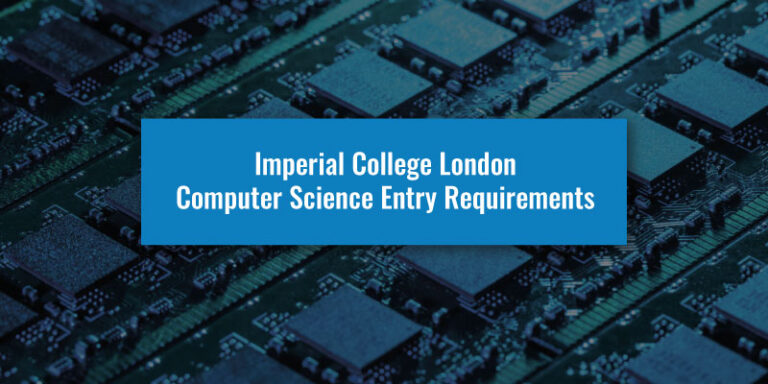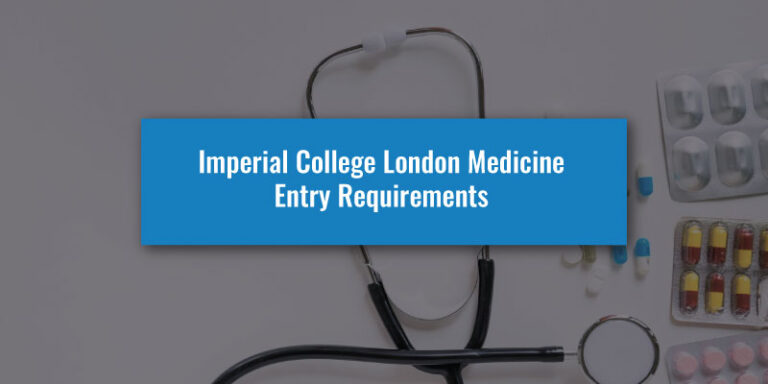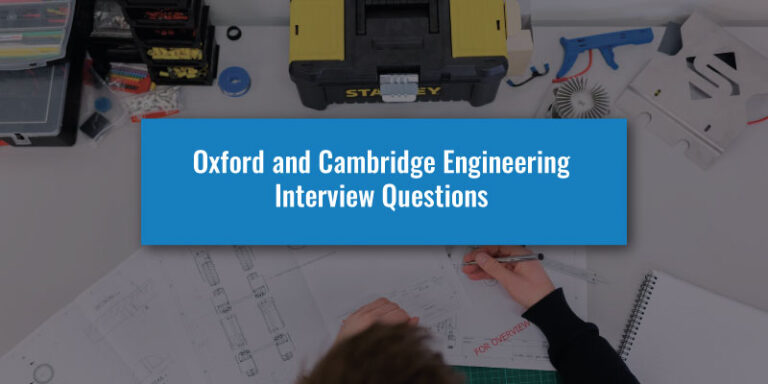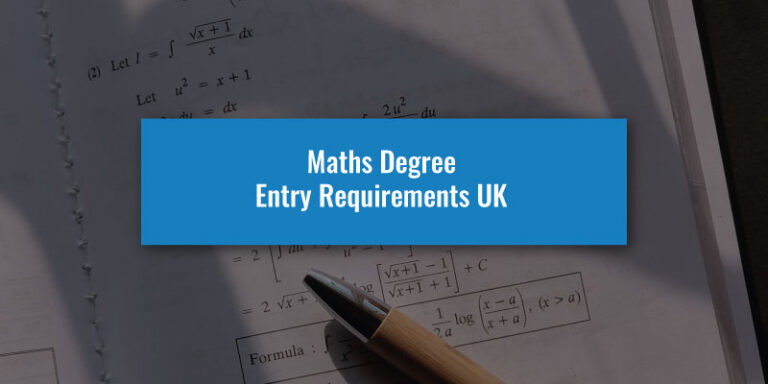Imperial College London is regarded as one of the best universities in the world to study Engineering, with many different specialities available for undergraduates. Naturally, this makes getting an offer a difficult process.
Being a Russell Group and G5 University, Imperial stands toe-to-toe with prestigious universities like Oxford and Cambridge, sometimes even surpassing them! However, with an overall applicant success rate of just 10% in 2023, getting into Imperial isn’t easy.
In this guide, we’ll look at the full process for applying to the various Engineering degrees at Imperial. There are multiple steps you’ll need to take, so it’s important tat you have a firm understanding of all of them, so let’s begin!
Imperial College London Engineering Degrees
First, we should consider what Engineering degrees are actually available at Imperial.
Within the Department of Engineering, a standard Engineering course is not actually provided. Instead, you will need to apply for a specialised degree that teaches a specific type of Engineering. This means that you will need to have some understanding of what career you want to enter before you apply to Imperial.
The available courses at Imperial are as follows:
While all of these degrees have roots in Engineering, the principles within them are all vastly different from one another. The Faculty of Engineering at Imperial also handles various other degrees not directly related to Engineering, including Earth Science, Geology and Mathematics & Computer Science. As well as this, be aware that some of these are course combinations.
Imperial Engineering degrees typically last four years during which you will learn the ins and outs of your subject and embark on projects, including a major individual project in your final year.
Longer variants of certain courses are also available which include opportunities to study abroad or gain placements within the industry. These could extend your course to up to six years.
Imperial charges the standard tuition fee of £9,250 per year for UK engineering students, while international students are charged £43,300 per year. Annual costs will vary for years spent abroad or in the industry.
Get your place to study Engineering at Imperial with support from UniAdmissions.
For over a decade, we’ve been getting students into the top medical schools in the UK, including Imperial, Oxford, Cambridge and more. Through our carefully crafted suite of resources and our vast team of tutors, we will triple your chances of getting your offer.
Discover our Imperial Programme and click the button below to enrol and triple your chances of success.
Imperial Engineering Entry Requirements
Here are all of the major steps you’ll need to take when applying for Engineering at Imperial. Be aware that the process won’t be identical for each course as some will have more requirements than others. To learn more about the requirements for your specific course, be sure to review the course page on Imperial’s website.
GCSEs
While a specific amount of qualification isn’t stated., they state that applicants must have a majority of Grades 7- 9 in their GCSEs. On average, students complete 8 GCSEs, so you would need to have achieved 7 – 9 in at least five of your qualifications.
Applicants need to also have achieved a minimum of Grade 7 in both Maths and Science (either combined or separate) at GCSEs. However, Science and Maths are both compulsory GCSEs, so achieving this shouldn’t be too difficult.
A-Levels
Compared to GCSEs, A-Levels hold much greater significance and are often the most crucial aspect of your application. While Imperial Engineering applications involve several other key components that may be considered more important, A-Levels remain a critical factor in both receiving offers and final admissions decisions.
As with any other Imperial College London degree, you will need to meet a minimum grade requirement for your three A-Level qualifications, which is typically quite high due to the competitiveness of the university. This is especially true for Engineering degrees, which only admit the most promising applicants.
There is no single requirement for all the Imperial Engineering degrees, so this is the range that minimum grade requirements fall under:
Imperial College London Minimum Engineering Requirements A-Levels
AAA – A*A*A
As you can see, the lowest possible offer an applicant can receive for an Engineering degree is AAA, which is only available on a select few degrees like Biomaterials and Tissues Engineering or Material Science and Engineering.
In most cases, the minimum required grade will be A*AA or A*A*A. In all Engineering degrees, you will be required to achieve and A or A* in Mathematics, while most others will also require you to achieve a high grade in at least one science, usually Physics.
Some outliers to this include Molecular Bioengineering, which requires an A in Chemistry, Design Engineering, which doesn’t require a grade in any science, and Chemical Engineering, which requires an A* in Chemistry and an A in another science, Economics or Business Studies.
For A-Levels that don’t require a specific subject, recommendations include another science, computer science and further mathematics.
While these are the minimum offers sent out, most applicants will actually receive a higher offer. In most cases, 80% of applicants receive offers that fall under this range instead:
Imperial College London Standard Engineering Requirements A-Levels
A*AA – A*A*A*
Again, there is a lot of variance in terms of potential offers between degrees. On the lower end, a typical offer for Biomaterials and Tissue Engineering remains at AAA – A*AA. However, many degrees also adjust offers for applicants who are taking four A-Levels.
For example, a Civil Engineering applicant taking four A-Levels could be given an offer of A*AAA rather than A*A*A. However, for Aeronautical Engineering applicants, Imperial states that applicants could be sent an offer as high as A*A*A*A*, which is the highest possible A-Level performance a student can achieve.
Alternative Qualifications
Outside of A-Levels, there are many other qualifications that can be taken, although not all are accepted by Imperial.
Scottish applicants who are taking Advanced Highers will always be expected to achieve AAA, with Maths and Physics often being required. UK qualifications such as BTECs or Welsh Baccalaureates are not accepted and UCAS Tariff points are not considered in the admissions process.
International applicants have limited qualification options, with the most common being the International Baccalaureate (IB). The IB is a globally recognised qualification available in many countries around the world.
The minimum requirements for IB students can fall between 39 and 40 points, including 7s in Maths and sometimes Physics at higher level. However, like A-Levels, most offers given require 41 – 42 points, with some going as high as 44.
As for other national qualifications, Imperial accepts only a limited number, with some of the recognised ones including the French Baccalaureate, HKDSE, CBSE, and Advanced Placements.
Personal Statement
ESAT
As of 2024, Imperial College London has adopted the Engineering and Science Admissions Test (ESAT) for a selection of the courses they offer. Originally developed to replace a pair of cancelled Cambridge admissions tests, Imperial partnered with Pearson VUE to also utilise this new test.
Not every degree listed above requires the ESAT, the following are the ones that will require you to complete it:
Of the ones missing from this list, only Computing (Software Engineering) requires a separate admissions test, this being the TMUA. This is because the course is more closely linked with Imperial Computer Science, which features the TMUA as a requirement.
The ESAT is a multiple-choice quiz that is split into five distinct sections covering Mathematics, Advanced Mathematics (Maths 2), Physics, Chemistry and Biology. Applicants are only required to complete up to three of these subtests in a test sitting, meaning no one will complete all five parts.
While some applicants can choose which sections they take, every Imperial degree that requires the ESAT has set sections that applicants must complete. For most, these are Maths, Physics and Maths 2, but two courses have different requirements:
- Chemical Engineering applicants must complete Maths 1, Chemistry and Maths 2.
- Design Engineering applicants are only required to complete Maths 1 and Maths 2.
There are two testing periods for the ESAT in September and January, which each run over multiple days; Imperial applicants can register for either one. Once you’ve completed the test, your results will automatically be sent to the admissions team at your relevant subject department.
Imperial ESAT Cut Off Score
For 2025 Entry, Imperial hasn’t set a threshold score for ESAT applicants, so applicants will be considered no matter what score they achieve. However, with how competitive these courses are, you still need to aim for a high ESAT score to remain competitive.
Interviews
Interviews are implemented as a part of the Engineering application process, with competitive applicants being invited to attend anywhere between November and March. These can take a variety of different forms, with different courses using different formats.
Online Panel Interviews
It’s stated that these interviews will be held online and should last up to 30 minutes. You’ll be speaking with members of staff from the Engineering academic team, who will ask you a variety of question about yourself and your motivations, as well as a selection of problems to solve, similar to Oxbridge interviews.
These are the most common types of interviews, being used by degrees such as Design Engineering, Mechanical Engineering, Electrical Engineering and Aeronautical Engineering.
Post Application Interview Day
This style of interview is primarily used for the Biology and Chemistry-based degrees like Chemical Engineering, Biomedical Engineering and Biomaterials.
These days are held multiple times between November and March, where viable candidates are invited to a full day of activities. These include a 45-minute group activity, a 45-minute Q&A and a one-to-one interview with one of the subject lecturers. This will last 30 minutes.
Insight Sessions/Video Submissions
Civil Engineering applicants will need to take on a unique task rather than a traditional interview. You will first be invited to an Insight Session, which is an online talk that gives more information about the course, department and university. This should last for an hour and is held in either November or February depending on when you submit your application.
If selected to continue, you will also need to submit an asynchronous interview video submission in which you answer a series of questions relating to your motivation, skills and experience. This will need to be completed within 48 hours of receiving the invitation, which is sent soon after the Insight Session.
Be aware that, no matter which interview style you had, you may not hear from Imperial quickly, as they will be receiving applications up until January. However, all applications will be processed by March at the latest.
Conclusion
So, that is every major entry requirement to study Engineering at Imperial College London. Providing an English Language Proficiency Test result will be essential if English isn’t your first language and you don’t live in the UK, but there aren’t any other major requirements other than this.
This is certainly one of the most complicated admissions processes for Engineering in the UK, but that’s because of how high the standard is for students on these courses. Writing a great Personal Statement and doing well in the ESAT will ensure you get your chance to attend an interview, which will give you your final chance to impress the university and get your place.
However, doing all of this won’t be easy, so you may feel like you need some additional support. Thankfully, with UniAdmissions’ dedicated Imperial Programme, we can support you through your application to any of these courses! We cover all parts of the application process and guide you through one-to-one tuition, live courses, access to extensive resources and more! If this sounds like the right solution for you, book a free consultation to speak with our friendly admissions team and discover how we can support you.
Our expert tutors will guide you to Imperial Engineering success
If you want to compete amongst the top applicants for Imperial Engineering, you’ll need support from experts. We will help you craft the perfect Personal Statement, achieve a highly competitive ESAT score and take on your interview effectively – covering all areas of your Imperial application.
Discover our Imperial Premium Programme for comprehensive admissions support by clicking the button below to enrol and triple your chances of success.








